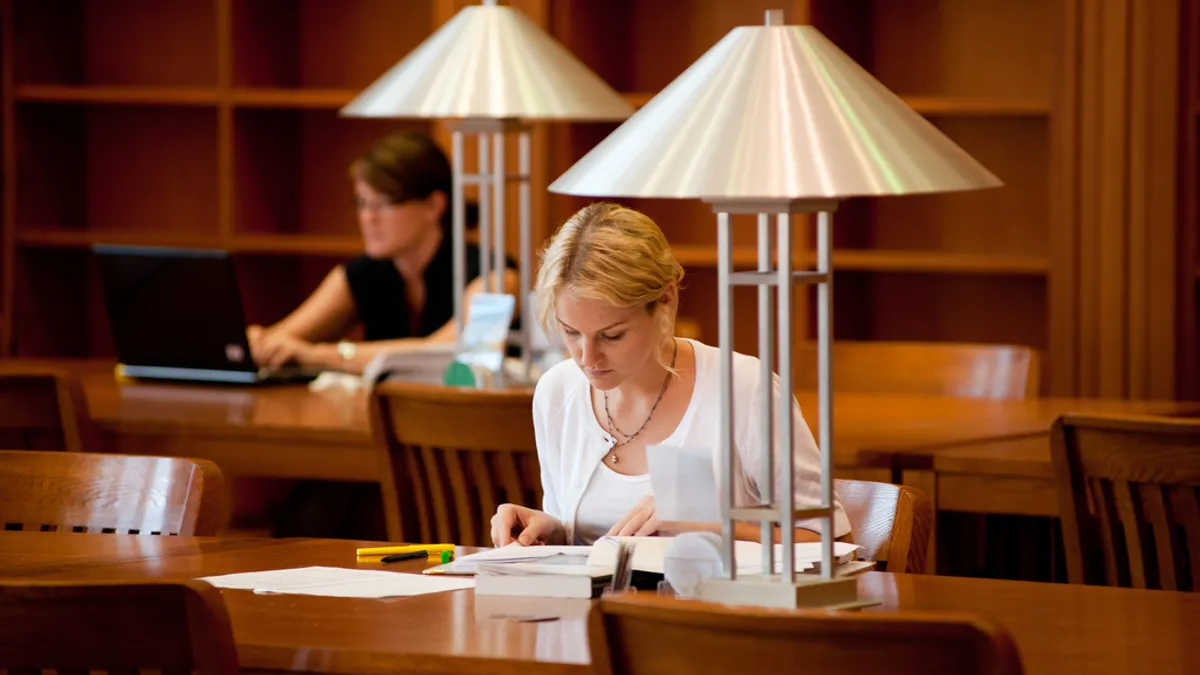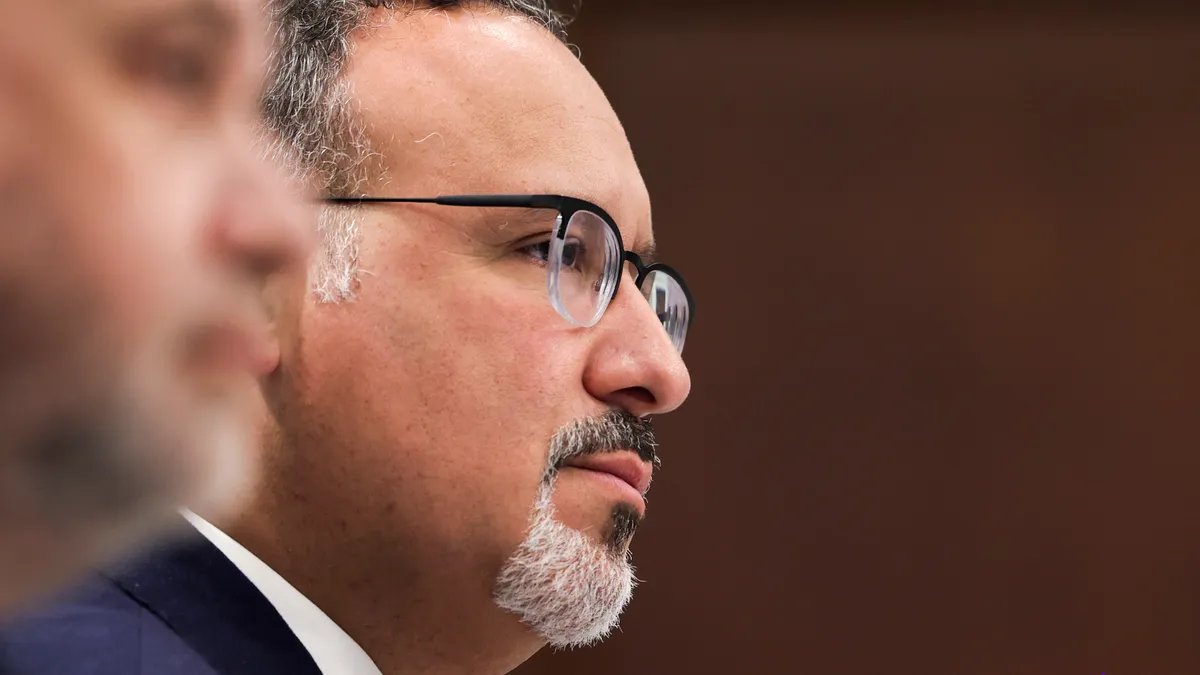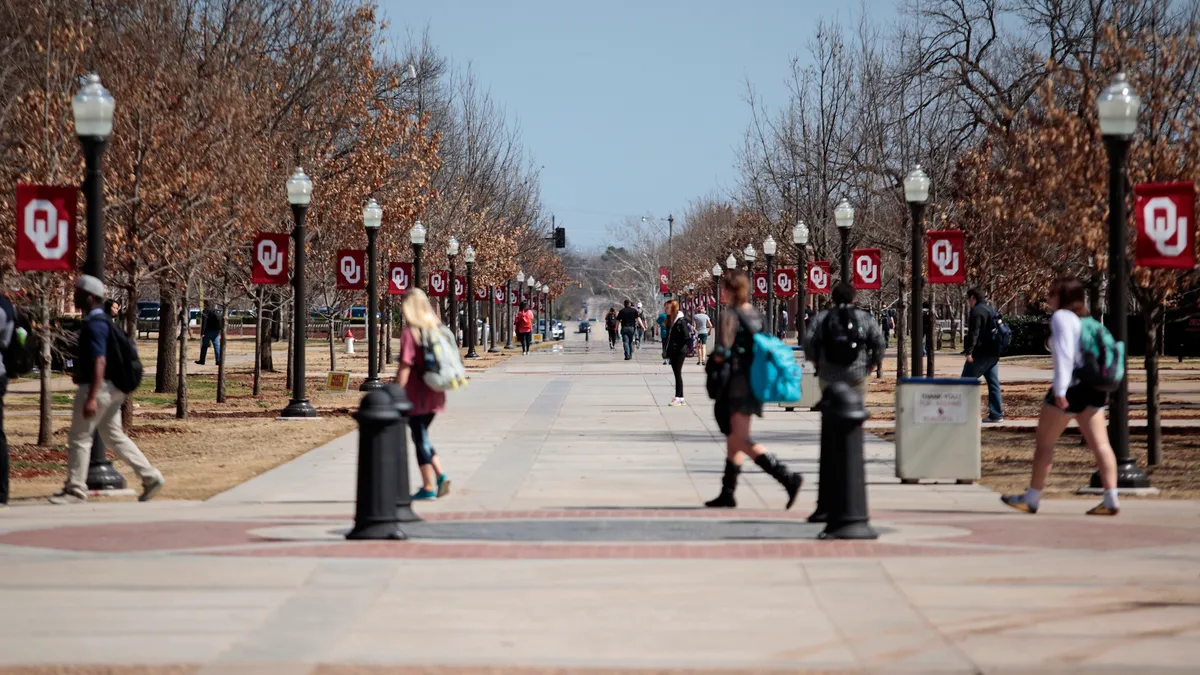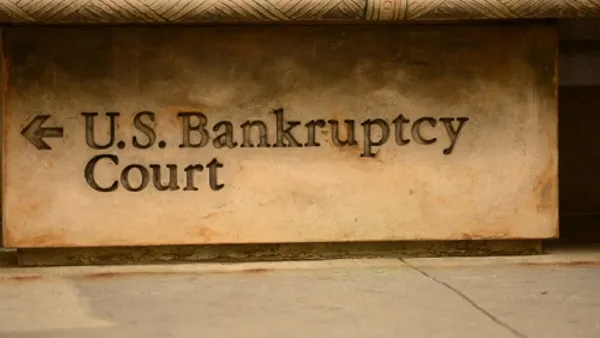Dive Brief:
- U.S. News & World Report may launch a new ranking of the nation's law schools that would order them based on their scholarly impact.
- The publication is asking law schools to provide names and other information about full-time tenured and tenure-track faculty. U.S. News will then find how many times each faculty member has been cited and published across thousands of legal periodicals in the last five years.
- The new ranking, which could be rolled out sometime in 2019, will be separate from the publication's annual Best Law Schools list.
Dive Insight:
There are several law school rankings, though U.S. News' annual list may be among the most popular for prospective law students. Despite its influence, the ranking has sparked criticism from those who say it is not the most accurate assessment of law school quality and encourages them to change their admissions practices to increase their rank.
U.S. News' proposed ranking on scholarly impact drew immediate skepticism from the legal community. Some worry such rankings will shift too much focus to scholarship and therefore detract from the goals of increasing access and fostering innovation. Others say the ranking's reliance on law review publications will diminish the value of interdisciplinary work.
The news of the ranking comes at a time when more law schools are experimenting with different educational approaches.
Andy Strauss, dean of the University of Dayton School of Law, has advocated for his program's forthcoming hybrid online Juris Doctor degree program, in which students will participate primarily in a virtual classroom, attending classes on campus for one week each semester. He believes this format will expand access by making legal education available in regions where none exist and by giving students more flexibility to learn "on their own schedules."
Although this is a new venture for U.S. News, a similar ranking of law schools' scholarly impact already exists.
Published by a team led by Gregory Sisk from the University of St. Thomas School of Law, it uses a similar structure for assessing law schools based on citations. It also includes data that indicates whether a few "highly cited faculty are carrying the school" or if there is a more even distribution of scholarly output, explains Brian Leiter, a University of Chicago law professor, in a blog post.












